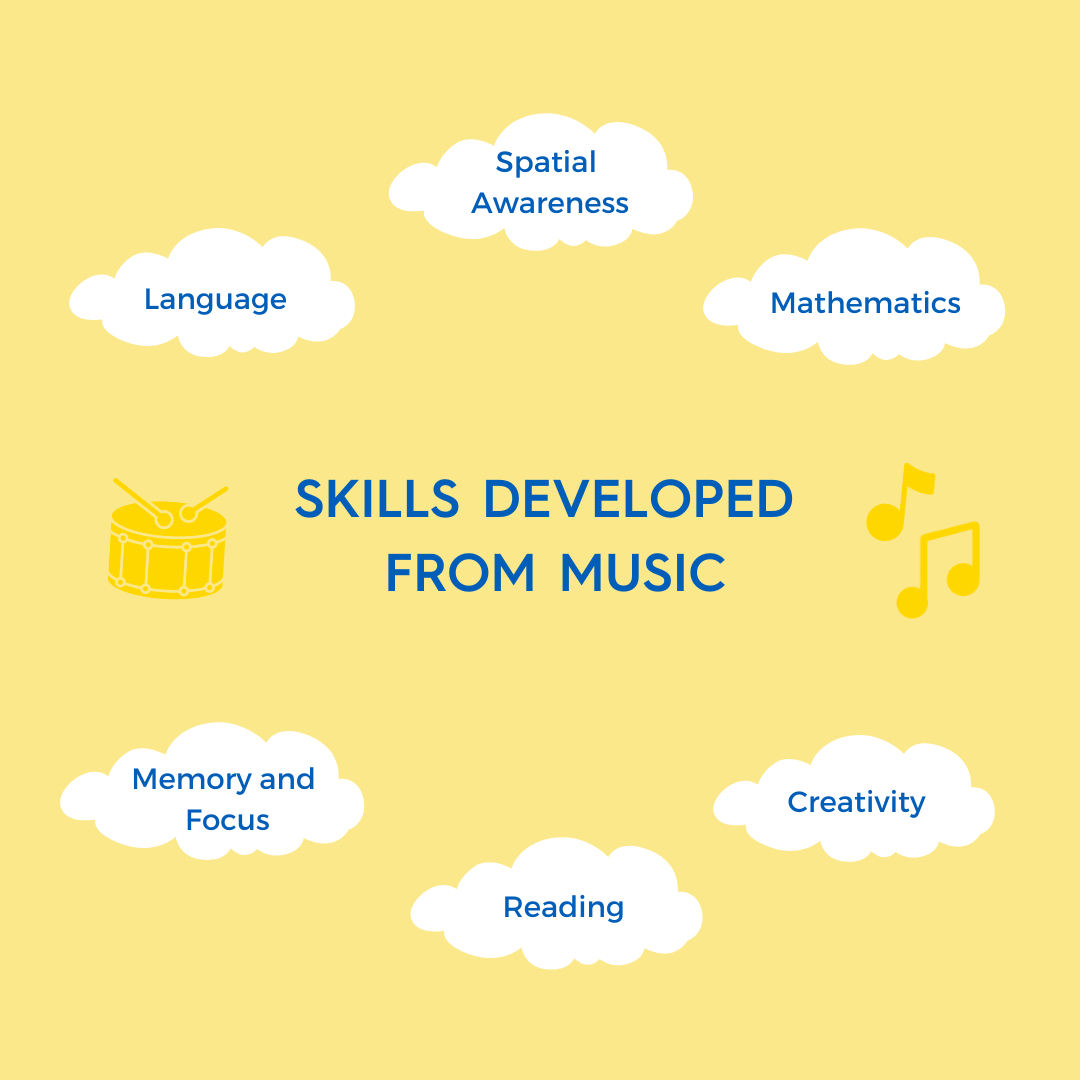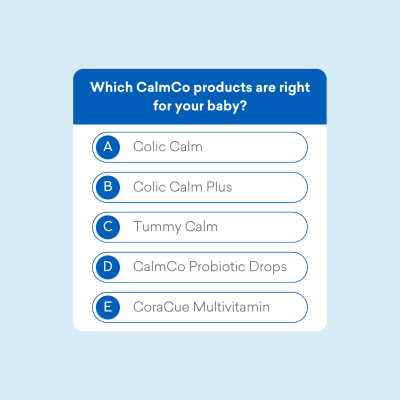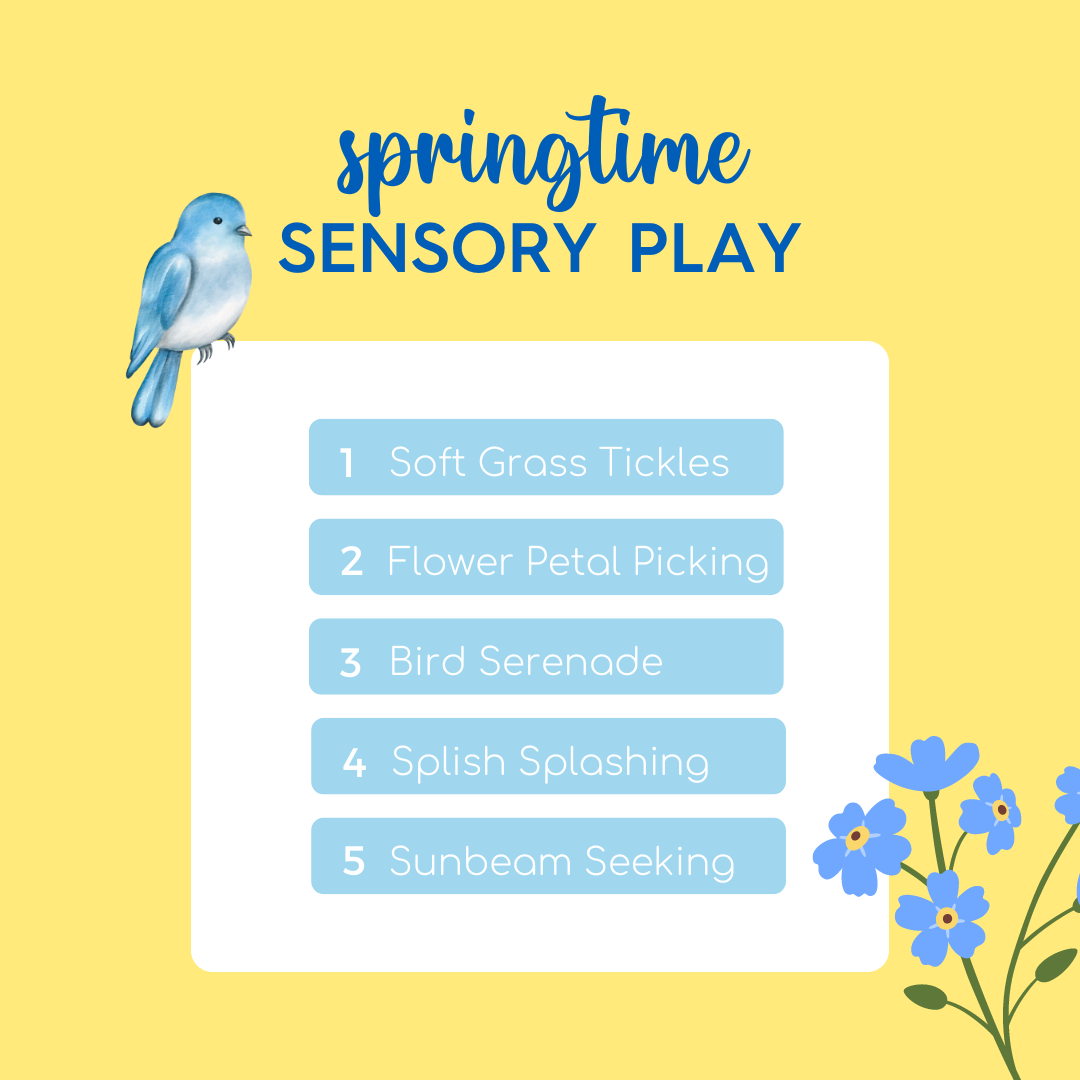The Benefits of Music in Childhood Development

From daytime play tunes to nighttime lullabies, music can play an important role in your child’s daily life. As a parent, it’s instinctive to use music to calm, teach and play with your child. Although we know that music can bring us and our children great joy, how does it impact our child’s developmental journey?
Music increases all areas of development and skills, including intellectual, motor, language, social-emotional, and literacy skills. In this blog post, we will expand upon each developmental ability that is made better by music.
Language and Reading
Music can have a surprising impact on learning languages. A 2016 study at the Brain and Creative Institute at the University of Southern California found that music exposure in childhood can accelerate brain development, particularly in language and reading skills. Children who grow up listening to music have stronger language skills as they develop music-related connections.
Children imitate the rhythm of a language long before being able to say the actual words. Music allows humans to retain words effectively. It can be particularly beneficial to play songs in your child’s second language if he or she is learning to be bilingual. Providing your child with music exposure during the stages of early development helps them to learn the meanings and sounds of words.
Spatial Intelligence and Mathematics
In another study published in 2000 by The Journal of Aesthetic Education, it was discovered that music significantly enhances performance on various spatial tasks. Children who study music can form mental pictures of objects. This skill is important for studying more advanced mathematics later in life.
Learning to play a musical instrument can help improve mathematical learning and increase SAT scores. Fractions, pattern-recognition and problem solving can all be learned by reading sheet music and listening to musical beats.
Memory and Focus
As your child grows older, music can also help strengthen memory skills. Studies show that people who are musically trained can remember things even when their mind is busy with other matters. This is an important skill in reading comprehension and mental math. Since learning music requires concentration, it can help children focus for long periods of time.
Creativity and Self-Expression
Music provides a way for your child to express himself or herself through dancing. Dancing to music can also help to build fine motor skills. Children can unleash their creativity, be inspired, and release excess energy through dancing. Music helps the brain and the body to work together.
Activities involving music:
1. Try freeze dance – a game where your child dances when the music is playing and freezes when it stops. “Freezing” builds inhibitory control, which is an important skill that develops rapidly through childhood.
2. Bring out drums and shaker instruments! These are great for children who are infants that are not developmentally ready for advanced musical games.
3. Dance with your child! If your child is an infant, you can move his or her hands around to mimic dancing. This will help him or her to develop fine motor skills and make the connection between music and movement.
4. Listen to music together in the car or at home. Start with smooth classical music as harsh, loud music can be harmful to your little ones’ hearing.
5. Sing together! It doesn’t matter if you have a great singing voice or a mediocre one; your child will love it when you sing along with him or her. Singing together helps with bonding as well as language comprehension.
As your child gets older, engage him or her in theater, choir, dance classes, instrument lessons, or other musical activities to further their music development.
Above all, music should be a joyful experience for you and your child. As you probably recall, listening to a certain song in childhood can evoke positive emotions when you hear the same song in adulthood. Providing your child with music at an early age enhances development and provides an outlet for creativity, joy, and memories.
If you’re searching for music for your baby or young child, visit CalmCo on Spotify to find our playtime, traveling tunes, and calm music playlists.
 Canada
Canada South Africa
South Africa UK
UK EU & Int
EU & Int Ireland
Ireland Australia
Australia Brazil
Brazil New Zealand
New Zealand


















Comments